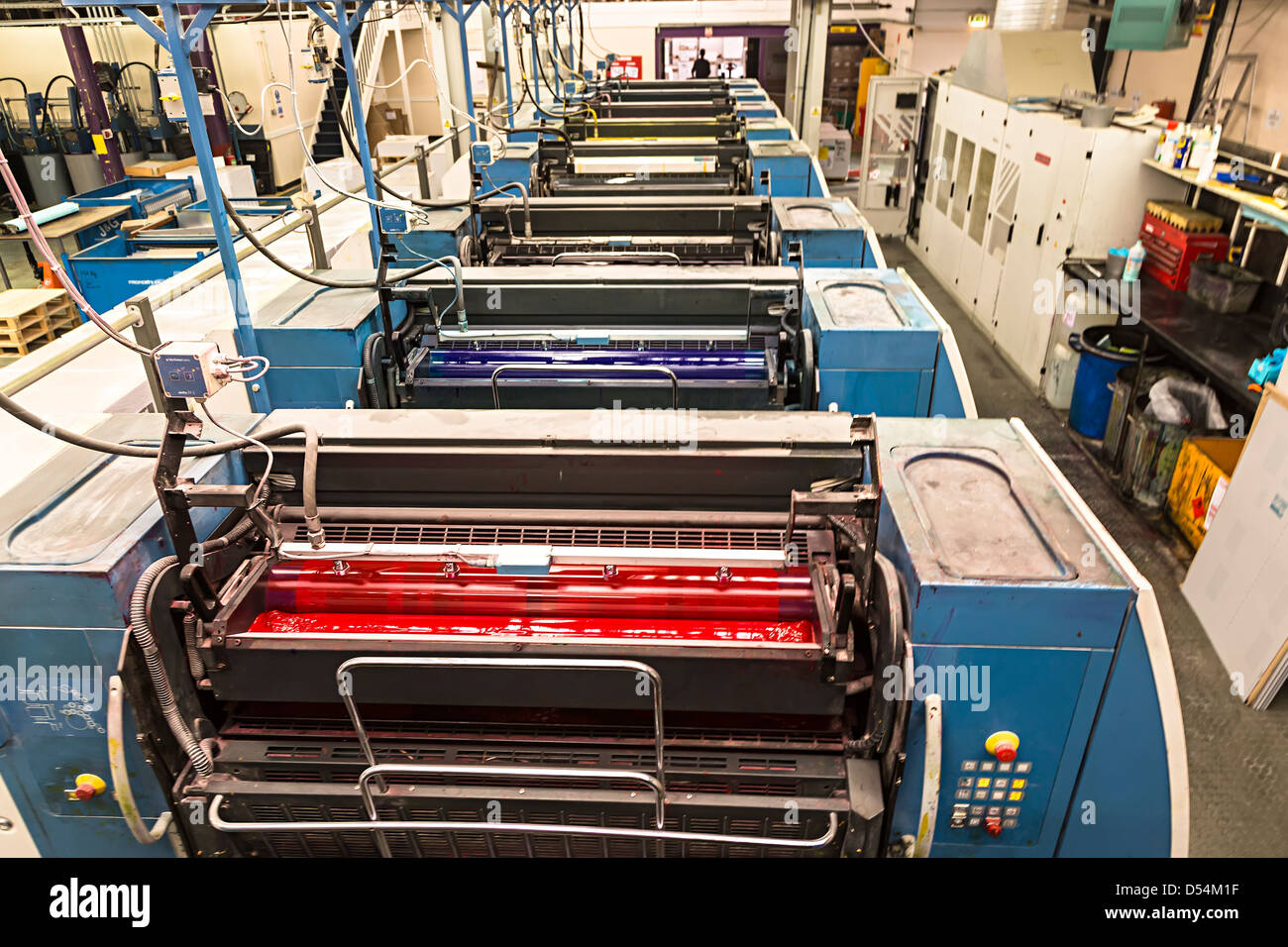High-Quality litho printing Services for Professional Results
High-Quality litho printing Services for Professional Results
Blog Article
A Comprehensive Guide to Comprehending Litho Printing Strategies
The world of litho printing, a strategy stemming from the late 18th century, is a remarkable blend of history, art, science and advancement. Keep with us as we trip right into the fascinating world of litho printing.
The Historical Evolution of Litho Printing
The historical trajectory of litho printing, a critical advancement in the realm of interaction, is a fascinating story of human ingenuity. The procedure developed with the introduction of the rotating press, which greatly boosted productivity. Each phase of litho printing's evolution showcases mankind's relentless search of efficiency and top quality in visual interaction.
Deciphering the Scientific Research Behind Litho Printing Inks
Moving on in the exploration of litho printing strategies, the focus now moves to the scientific research behind litho printing inks. The make-up of these inks, their drying procedure, and shade mixing techniques form the backbone of this complex art kind. Comprehending these components is important to understanding the craft and attaining the preferred print results.
Structure of Litho Inks
In lithographic printing, the essential duty of litho inks can not be overemphasized. Pigments, the color-providing elements, are carefully ground particles suspended in the automobile, a fluid that carries the pigment onto the printing surface area. Each element plays a crucial part in the last print's quality, making the specific formulation of litho inks a complex scientific research.
Ink Drying Process
From the structure of litho inks, focus transforms to the interesting process of ink drying. The drying procedure is essential, as it influences the last print's quality and long life. Two key approaches are utilized in litho printing: oxidative drying and absorption. Oxidative drying entails the ink responding with oxygen airborne to create a tough, dry film. This technique offers a long lasting finish, however can be slower contrasted to absorption. Absorption, on the various other hand, entails the ink leaking into the paper fibers, which is a much faster procedure however can result in much less dynamic colors. The selection between these methods is reliant upon factors such as print rate needs, the paper kind utilized, and the desired surface.
Color Combining Techniques
While the drying out procedure plays a vital function in litho printing, the science of color blending techniques holds equal relevance. The science behind litho printing inks likewise takes right into account the transparency of the ink, which influences how shades overlay and mix.
The Art and Design Components in Litho Printing
Litho printing breathes life right into art and style with its unique components. Litho printing accommodates a variety of colors, enabling musicians to produce dynamic and vibrant prints. This mix of precision and flexibility makes litho printing a preferred selection for many musicians and developers.
Modern Applications of Litho Printing Strategies
Litho printing methods have located considerable usage in the modern business industry. Its impact and significance remain to expand with the arrival of Read More Here new technologies and innovations in the field. This section will explore these modern applications and the transformative role they play in the printing market.
Commercial Litho Printing Utilizes
In today's electronic age, one could question concerning the significance of typical printing methods. Yet, litho printing continues to be a critical part of the industrial field. High-volume printing tasks, such as the manufacturing of publications, papers, and packaging, count on litho printing for its capacity to supply exceptional image quality and price efficiency. The process, which includes moving an inked image from a plate onto a rubber blanket and afterwards to the printing surface area, supplies unparalleled consistency. This makes it excellent for tasks calling for a huge print run. Litho printing additionally offers a wide shade spectrum, remarkable to that of electronic printing. This makes it the go-to option for projects that require vivid, high-grade color reproduction.
Technologies in Litho Printing
Pressing the limits of conventional methods, modern advancements have actually sustained a host of advancements in litho printing. These innovations have not only improved the top quality and performance of litho prints however also expanded its application extent. One famous advancement is digital litho printing, which combines the merits of electronic technology with litho's top quality output. This crossbreed design uses faster configuration times, decreased waste, and makes it possible for on-demand printing. An additional noteworthy improvement is the introduction of eco-friendly inks. These inks, made from vegetable or soy-based remedies, have substantially decreased the market's environmental impact. litho printing. In addition, the advancement of advanced plate modern technology has streamlined the printing procedure, leading to sharper photos and enhanced shade fidelity. These technologies emphasize the enduring significance of litho printing in the contemporary globe.
Exploring the Process of Litho Printing: Detailed

Challenges and Solutions in Contemporary Litho Printing

Despite the precision and tradition that litho printing proudly upholds, it is not without its set of contemporary challenges. Digital litho printing permits for cost-effective short runs and very easy personalization, addressing the issue of variable information. Hence, while there are obstacles, the litho printing sector is proactively adjusting to satisfy them head-on, ensuring its relevance in the future.
Verdict
In final thought, litho printing, with its rich background and clinical complexities, holds a significant place in the print sector. As the overview exposes, it's a synthesis of art and innovation, with modern advancements guaranteeing its significance. The sector encounters difficulties that require cutting-edge options, with an emphasis on automation and sustainability. The future of litho printing pivots on its capability to adjust to these transforming demands, verifying its enduring value in an evolving market.

Report this page